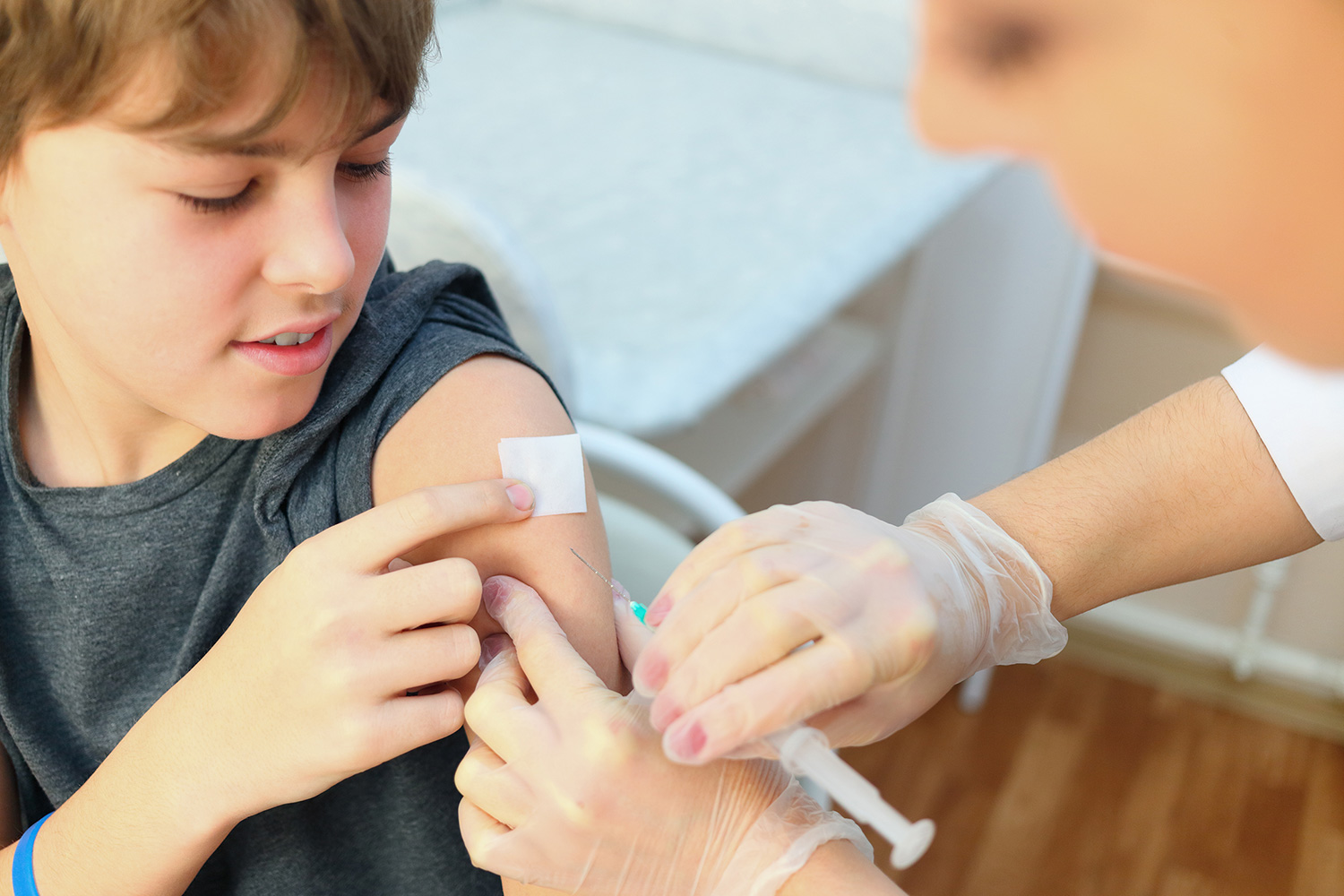Welcome to the Adolescent Vaccination Program Implementation Tool (AVP-IT). The Adolescent Vaccination Program (AVP) is as an evidence-based multi-component program to increase HPV vaccination rates in pediatric clinics. It was developed by researchers and physicians at The University of Texas Health Science Center at Houston (UTHealth) School of Public Health and Baylor College of Medicine. Whether you’re a clinic manager, health care provider, or immunization champion, this website is designed to help you and your clinic implement six strategies that have been demonstrated effective in increasing clinic HPV vaccination rates.

The ‘About’ section will give you an overview and background on this successful program.
Go to ‘My Action Plan’ to get the most from this website. Complete 12 questions about your clinic and current HPV vaccination activities, and use the powerful Action Plan Wizard to dynamically produce an Action Plan tailored specifically for your clinic. The Action Plan comprises information on each AVP evidence-based strategy, a step-by-step guide to implement these strategies in your clinic, templates and tools to save you time, and tips for success.
If you prefer to explore the strategies on your own, go to 'My Toolkit' and select from the array of resources available.
If you have any questions or need support, contact us here.
The AVP-IT was developed to enable pediatric clinics with the tools to adopt, implement, and maintain the evidence-based AVP strategies to increase their HPV vaccination rates. The AVP-IT includes detailed steps, templates, tips, and testimonials, to aid and empower clinics to incorporate the AVP into their current clinic practices. We hope you enjoy implementing the AVP in your clinic and wish you great success in improving your clinic's HPV vaccination rates.
The Adolescent Vaccination Program (AVP) was implemented in a large urban pediatric clinic network in Houston, Texas from November 2015 to February 2019, and it is currently being implemented in a clinic network in San Antonio, Texas. Results indicate the AVP to be feasible for clinic use and effective in increasing both initiation and completion of the HPV vaccine series among male and female patients. The Houston project was associated with an increase in HPV vaccine initiation rates from 62.5% in 2015 to 81.0%. This percent increase was greatest (54.2%) in the primary population for initiation (11-12 year olds). A monthly increase in HPV vaccination initiation of approximately 4% was demonstrated during the field trial following commencement of the AVP.

 MAIN RESULTS
MAIN RESULTSVernon SW, Savas LS, Shegog R, Healy CM, Frost EL, Coan SP, Gabay EK, Preston SM, Crawford CA, Spinner SW, Wilber MA. Increasing HPV Vaccination in a Network of Pediatric Clinics using a Multi-component Approach. J Appl Res Child. 2019;10(2):8.
 AVP DEVELOPMENT
AVP DEVELOPMENT
Crawford CA, Shegog R, Savas LS, Frost EL, Healy CM, Coan SP, Gabay EK, Spinner SW, Vernon SW. Using Intervention Mapping to Develop an Efficacious Multicomponent Systems-Based Intervention to Increase Human Papillomavirus (HPV) Vaccination in a Large Urban Pediatric Clinic Network. JARC. 2019; 10(2):Article 9.
 OTHER FINDINGS
OTHER FINDINGS
Farias AJ, Savas LS, Fernandez ME, Coan SP, Shegog R, Healy CM, Lipizzi E, Vernon SW. Association of physicians perceived barriers with human papillomavirus vaccination initiation. Prev Med 2017;105:219-225. doi: 10.1016/j.ypmed.2017.07.016
Walker TJ, Rodriguez SA, Vernon SW, Savas LS, Frost EL, Fernandez ME. Validity and reliability of measures to assess constructs from the inner setting domain of the consolidated framework for implementation research in a pediatric clinic network implementing HPV programs. BMC Health Serv Res. 2019 Mar 29;19(1):205. doi: 10.1186/s12913-019-4021-5.
Eska JS, Lairson DR, Savas LS, Shegog R, Healy CM, Vernon SW. Implementation costs of a multi-component program to increase human papillomavirus (HPV) vaccination in a network of pediatric clinics. JARC. 2019; 10(2):Article 8.

Erica Frost, MPH
Program Manager

Lara Savas, PhD
Co-Principal Investigator

Laura Thormaehlen, MPH
Research Assistant

Ross Shegog, PhD
Principal Investigator

Sally Vernon, PhD
Investigator

Sharon Coan, MS
Statistician

Mary Healy, MD
Infectious Disease Specialist
The AVP-IT Team is comprised of an interdisciplinary team with experience in behavioral science/health promotion, epidemiology, clinical vaccinology, intervention planning and evaluation, and information technology. This collaborative partnership was established in 2014. Since then, we have received funding for three HPV vaccination grants funded by the Cancer Prevention & Research Institute of Texas (CPRIT). All projects led by this team have institutional commitment from the UTHealth School of Public Health (UTSPH) whose mission is to evaluate and disseminate health promotion and disease prevention programs in diverse settings and populations.
The AVP-IT is funded by the Cancer Prevention and Research Institute of Texas (CPRIT). CPRIT was established to fund cancer research and prevention programs and services through a constitutional amendment approved by Texas voters in 2007. Their mission is to advance cancer research capabilities and related product development, and to make evidence-based prevention programs accessible to all Texas residents.